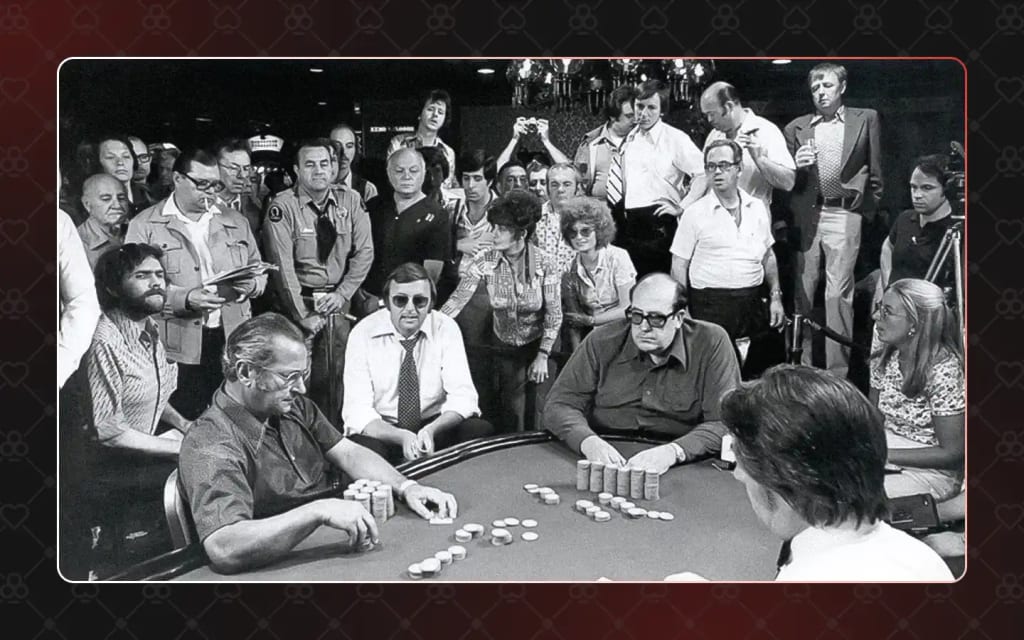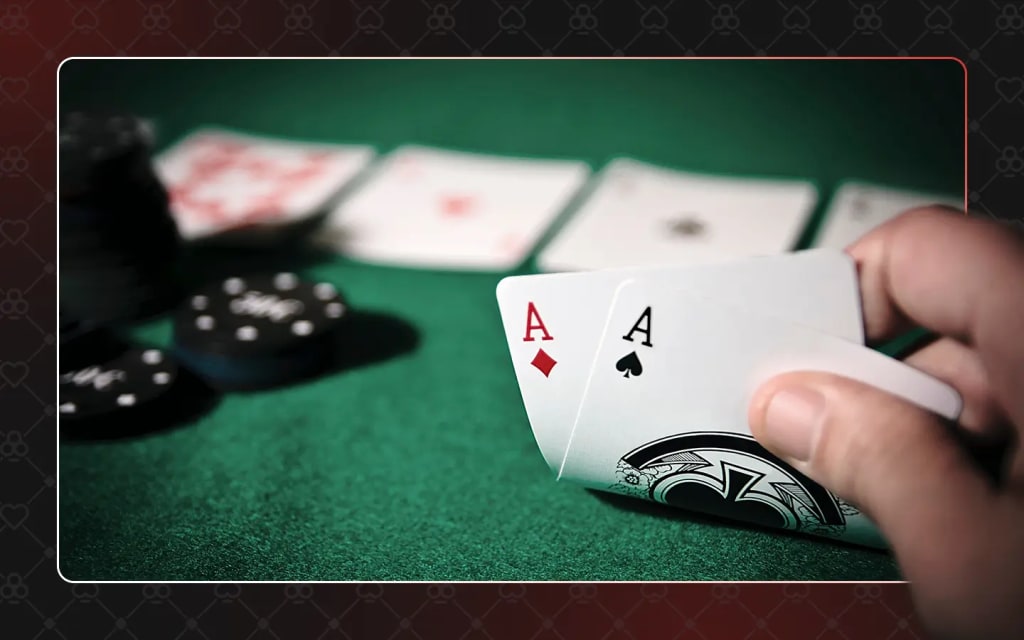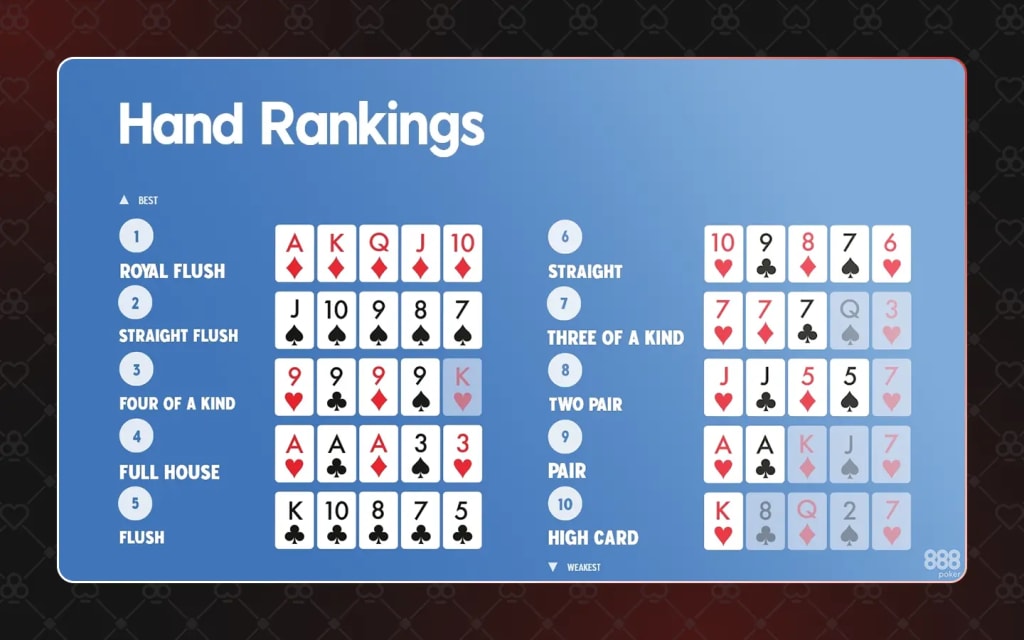Texas Hold’em: The World’s Favourite Card Game – 2026

Texas Hold’em is hands down one of the most popular card games in the world. There is no game quite like the Cadillac of poker, as legend of the game Doyle Brunson used to call it. The blend of skill, strategy, and sheer nerve required to be successful in Hold’em makes it one of the toughest card games ever. It is Texas Hold’em that made poker champions larger than life, inspired countless Hollywood movies, and turned smoke-filled backrooms of shady pubs into flashy studios of high-stakes competition.
Whether you’re a seasoned pro or a curious newcomer, Texas Hold’em offers a thrilling mix of psychology, mathematics, and intuition. In this guide, you will learn everything you need to know about the game, from its history through its rise in popularity to some essential strategy tips to get you started.
A Brief History of Texas Hold’em Poker
The exact origins of Texas Hold’em are somewhat shrouded in mystery, but the game is believed to have been born in early 20th-century Texas. The game is said to have originated from the city of Robstown, Texas, where local residents sought to play a faster, more dynamic version of traditional poker. By the 1920s, Texas Hold’em had spread across the Lone Star State, becoming a staple of underground card rooms and saloons.

The game spread to a wider audience of players in 1967 when a group of Texan gamblers introduced it to Las Vegas . The first casino to offer Texas Hold’em games was the Golden Nugget, but the game wasn’t yet part of the mainstream. In 1970, the WSOP made Texas Hold’em its Main Event, and the rest, as they say, is history. Today, the WSOP Main Event attracts thousands of players from around the globe, with winners like Doyle Brunson, Phil Ivey, and Daniel Negreanu becoming household names.
About 30 years later, Texas Hold’em’s popularity exploded once again. The advent of online poker and tournaments broadcast on live television made the game visible to a wider audience in the early 2000s. The ‘Moneymaker Effect‘, named after Chris Moneymaker, an amateur player who won the 2003 WSOP Main Event after qualifying through an online satellite, inspired millions to try their hand at Texas Hold’em. Suddenly, anyone with an internet connection could play poker, and the game became a worldwide sensation, played everywhere from casual home games to high-stakes tournaments in Monte Carlo.

Why Texas Hold’em Became So Popular
The game’s unmatched popularity is primarily due to its accessibility. Despite the fact that the rules are much easier to learn than most card games, under the surface level the game offers immense strategic depth. As the legendary poker commentator and player Mike Sexton put it: ‘The name of the game is no-limit Texas Hold’em, the game that takes a minute to learn but a lifetime to master’. This duality makes Texas Hold’em appealing to both casual players and those seeking serious competition.
Texas Hold’em is more than just a game – it’s a microcosm of life. If one is willing to learn, the Cadillac of Poker can teach them numerous skills that can be used outside the poker room as well: patience, resilience, and calculated risk-taking are among the most important.
Last but not least, Texas Hold’em is an extremely social game that can bring people together. From friendly home games through casino tournaments to online battles, the game encourages interaction and sometimes even camaraderie among players.
In the late 70s, televised poker tournaments, particularly the WSOP and the World Poker Tour (WPT), brought Texas Hold’em into living rooms around the world. In 1997, poker broadcasts on television became even more enjoyable with the introduction of hole card camera technology. This innovation allowed TV viewers to see the players’ face-down cards, making broadcasts more immersive and delivering a firsthand experience.
When online poker platforms first launched around the millennium, Texas Hold’em became even more accessible: from that moment, anyone has been able to learn the poker rules and play without visiting a casino or card room. Since then, mobile poker apps have enhanced the game’s versatility, allowing players to compete anywhere with an internet connection.
The Rules of Texas Hold’em Poker
Texas Hold’em Poker is a card game that can be played with 2 to 10 players using a standard 52-card deck. Poker rules of this game are not that difficult; players have to make the best possible five-card hand by using a combination of their private ‘hole cards’ and the shared ‘community cards’ on the table.

Before dealing any cards, the two players to the left of the dealer must post mandatory ‘blind bets’ called the ‘small blind’ and the ‘big blind’. The purpose of these blind bets is to make sure there is always some money in the middle to incentivize action from the players.
When the blinds are posted, each player is dealt two ‘hole cards’ face down, and the first betting round begins. In this first betting round, called ‘pre-flop’, players can either:
- throw their cards away or ‘fold’
- put in the same amount of money as the big blind or ‘call’
- put in more money than the big blind or ‘raise’
After all players have acted, three community cards are dealt face-up in the middle, called the ‘flop’, and another round of betting happens.
After all players have acted on the flop, a fourth community card is dealt face-up: the turn, where another round of betting ensues.
After players have acted once again, a single final community card is dealt face-up: the river, where the last round of betting takes place.
If more than one player remains after the final betting round, a showdown occurs where players turn their hole cards face-up and compare their ranks. The pot is awarded to the player with the best five-card hand. The pot is split equally among the winning players in case of a tie.
According to Texas Hold’em rules, hands are ranked according to traditional poker hierarchy, from high card to royal flush.
Texas Hold’em Hand Rankings
To evaluate their own and their opponents’ hands, players need to be familiar with the hand ranking hierarchy of the game. Here are the rankings for every possible combination, sorted from highest to lowest:
| Hand Rank | Description | Example |
|---|---|---|
| Royal Flush | A, K, Q, J, 10 of the same suit | A♥ K♥ Q♥ J♥ 10♥ |
| Straight Flush | Five consecutive cards of the same suit | 9♣ 8♣ 7♣ 6♣ 5♣ |
| Four of a Kind | Four cards of the same rank | Q♦ Q♠ Q♣ Q♥ 3♠ |
| Full House | Three of a kind + a pair | J♠ J♦ J♣ 4♥ 4♠ |
| Flush | Five cards of the same suit (not consecutive) | K♠ 10♠ 7♠ 6♠ 2♠ |
| Straight | Five consecutive cards (not of the same suit) | 10♦ 9♥ 8♥ 7♣ 6♦ |
| Three of a Kind | Three cards of the same rank | 7♠ 7♦ 7♣ K♥ 2♠ |
| Two Pair | Two different pairs | A♠ A♦ 9♣ 9♥ 5♠ |
| One Pair | One pair | Q♠ Q♦ 10♣ 7♥ 3♠ |
| High Card | No matching cards; the highest card wins | A♠ K♦ Q♣ 10♥ 7♠ |

Basic Strategies & Tips for Texas Hold’em Poker
Texas Hold’em Poker is a game of incomplete information: players only see their two hole cards and the community cards in the middle, but not their opponents’ cards. Because of the nature of the game, reading opponents, dealing with unknown factors, and managing risk are just as important as the player’s own cards and knowing poker rules.
Here are some essential tips to help you get started:
Avoid Weak Starting Hands
In the long run, some hands consistently outperform others. Take the time to carefully evaluate the strength of your hole cards before the flop. It is best to play strong starting hands, such as high pairs and suited connectors. Let go of weak hands even before the flop in order to avoid costly mistakes on later betting rounds.
Play More Hands In Late Positions
Always be aware of your position relative to the dealer, as it should significantly impact your strategy. If you are in a ‘late position’ (closer to the dealer), you have already seen your opponents act, so you can make better decisions based on them. Use this advantage to play more hands aggressively.
Be Careful With Bet Sizings
Proper bet sizing is very important in Texas Hold’em. You may scare your opponents away if you bet too much, but on the other hand, your cards will not be protected if your bet sizing is too small. Adjust your bets after considering multiple factors, like the strength of your hand, your opponents’ tendencies, and table dynamics. Try not to be too predictable with your bet sizes; it is better if you always keep your opponents guessing.
Bluff Intelligently
Bluffing can be a powerful skill in Texas Hold’em, but you should only bluff strategically. If you bluff too frequently, you will most likely throw your money away; however, if you only put in well-timed bluffs, it can significantly boost your profits. If you want your bluffs to be successful, you need to understand your opponents’ tendencies and sell them a convincing story with your betting action.
Pay Attention To Your Opponents’ Actions
Always observe your opponents’ betting patterns and behavior, even when you are not in the hand. Are they mostly aggressive or mostly passive? How often do they bluff?
While physical tells (like nervous tics or eye movements) are not present in online poker, observing your opponents’ betting patterns can give you lots of information about their cards. A surprisingly big bet might signal a strong hand, while a delay in betting could mean that he is not sure he made the right move.
Bankroll Management
If you want to be successful in poker, appropriate bankroll management is absolutely critical in the long run, because even the world’s best players experience losing streaks from time to time. Set limits on how much you’re willing to lose and stick to them. Avoid chasing losses, and don’t play at stakes that are too high for your bankroll. This discipline ensures you can weather the ups and downs of the game.
Advanced Tips & Tricks for Texas Hold’em Poker
If you already know the basics, you may want to take your game to the next level with more advanced strategies. Here are a few aspects to consider:
Tournament vs. Cash Game Strategies
Tournaments and cash games have very different structures and inner mechanisms, so they require distinct approaches.
Players often adopt a tighter strategy in the early stages of tournaments but are forced to take more risks as the blinds increase.
Cash games, on the other hand, allow for more flexibility. Since you can rebuy chips at any time, the focus shifts to maximizing profit in each hand. Aggressive play and exploiting weaker opponents are more common in cash games.

Calculate Pot Odds & Expected Value
While you don’t have to be a math genius to be successful at poker, you still have to understand a few easy-to-learn mathematical concepts.
Pot odds compare the current size of the pot to the cost of a contemplated call. For example, if the pot is $100 and your opponent bets $20, you’re getting 5:1 odds on your call. If your hand has at least a 16.7% chance of winning, the call is profitable in the long run.
Expected value (EV) takes this a step further by calculating the average amount you can expect to win or lose on a particular play. Positive EV decisions lead to long-term profitability, even if they don’t always result in immediate wins.
Think In Ranges
Trying to put opponents on very specific hands is what most amateurs do. More advanced players think in terms of ranges, an array of possible hands their opponent could have based on their past actions.
For example, if an opponent raises pre-flop, their range might include premium hands like Aces, Kings, and Ace-King, as well as speculative hands like suited connectors. You should be able to put your opponents on a more precise range of hands in later betting rounds, enabling you to make more informed decisions.
Bluffing = Building A Narrative
Think of bluffing as telling a very convincing story. A bluff is basically a narrative the player creates: the more convincing the narrative, the more successful the bluff will be.
For example, if the board shows 10♠ 7♣ 2♦, you can represent a strong hand like a set or two pairs by betting aggressively. However, bluffing too often can make you predictable. Use semi-bluffs (betting with a drawing hand that has the potential to improve) to balance your strategy.
Adjusting to Opponents
No two players are the same, and adjusting your strategy based on your opponents’ tendencies is what sets great players apart from mediocre ones. For example, if you’re up against a very aggressive player, you might want to play more conservatively and let them make mistakes.
Table Image
Always ask yourself what kind of a player your opponents think you are. If you know how others perceive you at the poker table, you can turn this table image into a powerful weapon.
If you’ve been playing tight and conservative, opponents are more likely to fold when you make a big bet. Conversely, if you’ve been bluffing frequently, they may call you down with weaker hands. Use this to your advantage by adjusting your strategy accordingly.
Emotional Control
Poker is not just a strategic battle against opponents but a mental battle against oneself. Knowing the psychological aspects of the game can give you a significant advantage over your opponents.
Playing poker often feels like riding a rollercoaster. Maintaining emotional balance is essential for making informed, rational decisions. Experiment with techniques that can calm your mind and help you maintain focus.
Common Mistakes to Avoid in Texas Hold’em Poker
There are countless pitfalls in poker. Be easy on yourself if you make a mistake – even experienced players make them from time to time.
Identifying potential pitfalls reduces the likelihood of falling into them. Here are some mistakes you should look out for:
Playing Too Many Hands
Joining the action with too many hands is the most common mistake beginners make. Play just a few strong starting hands, especially in early positions.
Ignoring Position
Position is a powerful tool in Texas Hold’em. Using the same strategy no matter which position you are in, will work against you sooner or later.

Overvaluing Hands
Having a seemingly strong pair doesn’t necessarily mean you have the best hand – it all depends on the specific situation. Evaluate the relative strength of your hand by factoring in the community cards on the board and what your opponents might be holding.
Failing to Adapt
Poker is a dynamic game that rewards those who are capable of adapting more. If you fail to adapt to your opponents’ strategies, you are guaranteed to lose money. Stay flexible with your strategies and don’t hesitate to adjust your approach if the situation demands it.
Tilt
An unlucky hand or a series of losses can cause frustration in players. Poker psychology calls this emotional state of frustration ’tilt’.
Negative emotions can lead to flaws in your decision-making process. If you can learn to recognize when you start to feel frustrated, you can just take a break from the game.
To avoid tilt, practicing mindfulness to maintain a calm demeanor may be an effective way. Remember, though, that variance is a natural part of poker that you cannot erase.
How to Get Started with Texas Hold’em Poker
Want to start playing Texas Hold’em, but don’t know where to start? Here are some tips to help you get ahead of the competition:
Learn the Basic Rules
If you’re new to Texas Hold’em, start by learning the basic poker rules and hand rankings. There are plenty of online resources, tutorials, and videos that can help you get started.
Take The Time to Study
Being disciplined about regular study sessions is what separates great players from mediocre ones. There are many free and paid courses on Texas Hold’em online for players of every skill level.
Join a Poker Community
Discussing strategies and hands with other aspiring players can be very valuable when starting out. Join forums like TwoPlusTwo or CardsChat to exchange ideas with people who share your interest in the game.
Play Online
Many sites offer low-stakes tables where you can play without risking too much capital.
Playing online is the best for improving your game fast, because hands are played way faster than in live poker, plus you can play multiple tables simultaneously. This means that you can gain much more experience playing a day online than you would if you spent a day in a casino!
Ready to test your skills? Join an online poker platform like CoinPoker or Natural8 to practice and compete against players worldwide. Remember, every pro was once a beginner—so take your seat at the table and let the games begin! Good luck!



















